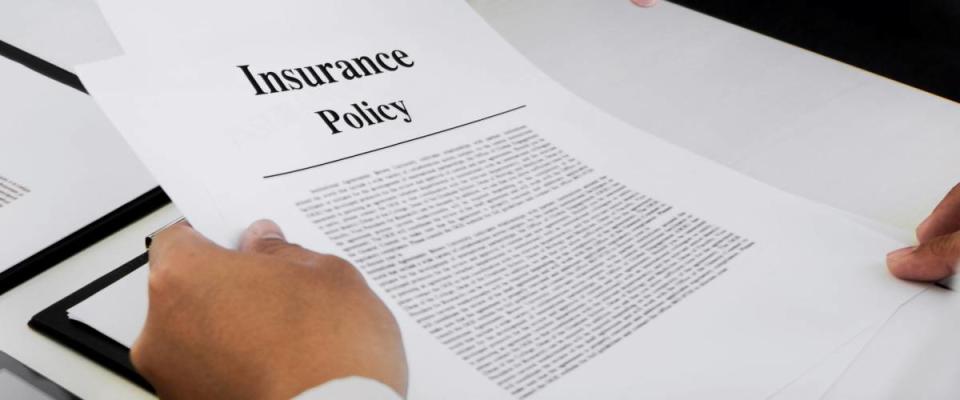How to avoid a messy breakup with your car insurance company

Let's say you've been with your auto insurance company for a few years and don't give your policy -- or your rate -- a whole lot of thought.
Don't get too comfortable. You might be missing out on a better deal with another insurer that offers lower rates or more car insurance discounts that you qualify for.
With so many insurers competing for your business, making a change can make good financial sense.
Here are eight steps to a successful switch.
1. Review your current policy

Know your current plan
Don't get into the habit of just automatically renewing your policy time after time. Go over your coverage and compare prices at least once a year, so you can feel confident you're still getting the lowest possible rate.
Double-check your deductibles (what you have to pay out of pocket for repairs before your insurance kicks in), whether it's smart to continue carrying collision or comprehensive coverage, and what discounts you're getting.
These details will be available on your information or declarations page at the front of your policy paperwork, or on a coverage summary tab when you log in to your insurer's website.
2. Shop around for the best deal

Shop around for other options
With so many national and regional auto insurance companies out there, the internet is your insurance research friend.
Visit insurers’ websites and answer a few simple questions about your car, your location and your driving record to get an initial quote. Take a look at the discounts offered by each company, because those can vary.
If it's looking pretty clear that your insurance carrier isn't competitive, make a list of your top alternatives. Don’t be afraid to go with a smaller insurer if it has the best rates.
3. Ask for a better deal

Call and ask for a better deal
Once you’ve had a look at your current coverage and have comparison-shopped and tracked down a better price, call your insurance company directly.
Tell them you've been a good customer (if that's true) but have found the same coverage for a lower rate with one of their competitors. Make it clear that you're thinking about making a switch.
Customer retention is a big deal for insurers, and many will fight to hold on to your business. They likely will review your account, see if you qualify for additional discounts and may try to match or even beat a rival’s quote.
4. Explore the cost of switching

Ask about cancellation fees
But your insurance company won't budge, and you're ready to leave? Make sure there's no cost to going elsewhere.
Some insurers charge a penalty for switching before the end of your coverage term. You may have to pay 10% of your unused premium or a fixed fee of $30 to $50 if you cancel in the middle of your term.
Other auto insurance companies allow you to cancel at any time if you give proper notice. Ask your insurer if there's a cancellation penalty, so you can decide if it makes sense to switch now or in a few weeks or months.
5. Read the reviews

Always read the reviews before signing up
An insurance policy may look good at a glance, but the fine print can be a killer. Before you sign on to a new policy with another insurance company, make sure you go over it thoroughly.
And, check online customer reviews and the insurer's Better Business Bureau ratings to see if there are issues with claims payments and service.
Some companies are more likely to put the client at fault for an accident, take a long time to process and pay a claim, or pay the incorrect amount. For the sake of your wallet and your sanity, don’t sign up with a company if its service is no good.
6. Make sure there’s no gap in your coverage

Make sure there's no gap in your coverage
Whenever you switch insurers, always be absolutely certain you have continuous coverage. If there's any gap in your coverage and you get into an accident, you could be on the hook to pay all of the costs on your own.
And once you've gone without insurance — even for just a couple of days — insurance companies may charge you more in the future.
So, before you change carriers, make sure you have documentation of the date the new policy goes into effect. And don't allow your old policy to expire until the new one is in force.
7. Cancel your existing policy

Cancel your service and make it official
Cancel your old policy carefully. Whatever you do, don't just stop paying your premium, because the insurer could report you to the credit bureaus as a deadbeat.
Notify the company that you are ending your relationship and are going with a different provider. Ask for written confirmation, including the final date that your policy is in effect.
This document can help you dispute any additional accidental billing and will ensure that your credit is protected.
8. Drive safe!

Drive safe, especially during the first 90 days
For the first 90 days of your new policy, you’re effectively on probation.
If you file a claim, get a ticket or cause an accident during those early days, the laws make it easy for the insurance company to cancel your coverage and send you looking for a new carrier. And finding one will be tougher once you've been dropped.
So, be extra careful behind the wheel — to make a good first impression.
Join the MoneyWise mailing list. You’ll get the latest financial tips and news, straight to your inbox.

 Yahoo Finance
Yahoo Finance 